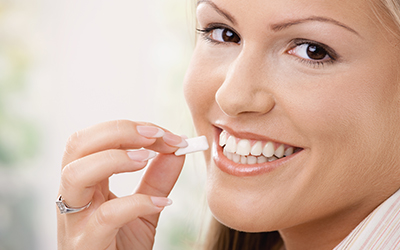Image Credit:
Image Credit:

It’s common knowledge that sugar is unhealthy for both our bodies and our teeth. If allowed to sit on the teeth for long periods, sugar can cause dental cavities and tooth decay. Fortunately, there is a natural sugar substitute called xylitol. Xylitol doesn’t pose any damage to your teeth and has actually been shown to reduce the risk of dental cavities.
The American Academy of Pediatric Dentistry has recognized xylitol as a good way to prevent the formation of cavities. Xylitol is naturally derived from plants and is antimicrobial, which means it can reduce plaque and lower the level of acids in the mouth that can cause damage to the tooth enamel.
Xylitol is a natural sugar alcohol and is found in many different fruits and vegetables. In comparison to other artificial sweeteners, xylitol has virtually no side effects and can be extracted from mushrooms, berries, oats, and birch. Additionally, xylitol has low caloric value in comparison to natural sugars and other artificial sweeteners.
Xylitol can be found in mouthwashes, toothpaste, mints, and most sugar-free chewing gums. Chewing gum is the best way to get xylitol because gum can also help to stimulate saliva production, which will wash away harmful acid and bacteria in the mouth. According to the American Dental Association, chewing xylitol gum for 15 minutes a day can help prevent tooth decay and dental cavities.
In the end, the best way to care for your oral health is to follow a good at-home dental routine. This should include brushing at least twice a day, flossing every day, and visiting your regular dentist every 6 months for a dental cleaning and exam. Never use xylitol as a replacement for good at-home oral hygiene.
For more tips on keeping your gums and teeth healthy, please make an appointment with Dr. Wilson here at Coastal Periodontics. Our office is located in Portsmouth, New Hampshire.